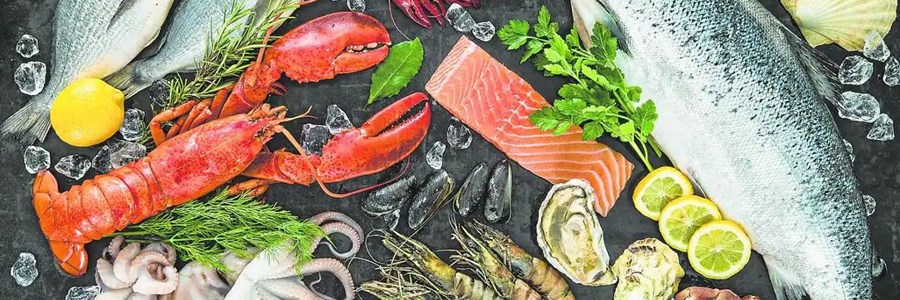Europêche calls for sustainability conditions in EU fish import tariff regime

The European Commission has launched a public consultation on the sustainable import of fishery products under the EU Autonomous Tariff Quota (ATQ) Regulation[1]. The Commission is looking to possibly adjust the ATQ regime to incorporate sustainability criteria for imported products to benefit from the tariff derogations. Europêche views this as a unique opportunity to transform the duty-free regime, aligning it with the EU's environmental, social, and food sovereignty objectives and ultimately help achieving a level playing field in the EU market.
Autonomous tariff quotas (ATQs) allow imports up to a given quantity to enter the EU market at a lower or zero tariff. For most fishery products, the in-quota tariff is set at zero. Given that tariffs can reach up to 25%, the ATQ system substantially lowers the cost of raw materials for Europe’s fish processing industry. However, the European Commission is clear: ‘Currently, tariff-free access applies on a first-come first-served basis for specific quantities of fisheries products, with no sustainability conditions attached. This raises questions related to the possible impacts on the conservation and management of the concerned fish stocks from non-EU fisheries, social and trade matters, as well as the competitiveness of the EU fishing sector. The Commission is therefore considering potential adjustments to address the sustainability of imported fishery products under the ATQ regime.’
While tariff derogations can and must support the EU processing industry, they must not come at the expense of fair competition or sustainable practices. Today, the ATQ regime allows duty-free access to over 900,000 tonnes of imported seafood annually—without applying the environmental and labour standards EU fishers are required to meet.
Daniel Voces, Managing Director of Europêche, states: “The EU trade policy is one of the most powerful tools to ensure fair competition and promote sustainability in global fisheries. The EU cannot preach sustainability at home while turning a blind eye to imported products that do not meet the same standards—especially when those products benefit from tariff exemptions. It’s time to close this loophole and make sustainability a prerequisite for tariff advantages.” He adds: ”In a new era marked by global tariff tensions, the EU must deploy its trade tools—such as the ATQ—strategically, granting tariff benefits with purpose and leveraging them to strengthen its geopolitical influence, not simply handing them out to the first applicant on a first-come first-served basis.”
The tuna sector exemplifies the problem. Xavier Leduc, Chair of Europêche tuna Group, highlights one of these loopholes: “The case of tuna is especially shocking: the EU grants each year 35,000 tons of duty-free tuna loins, used essentially from Asian countries where there are well documented cases of labour abuses and illegal fishing. These imports flood the market in a matter of days, distort prices, and directly harm the competitiveness of our fleet”.
Europêche proposes five key priorities for reforming the ATQ system:
- Mandatory sustainability criteria for a level playing field between EU production and imports – Duty-free access must be conditional on compliance with core international standards on fisheries governance, labour rights and environmental protection.
- Exclusion of IUU-linked countries – Nations involved in IUU (Illegal, Unreported, and Unregulated) fishing or in serious labour violations must be denied tariff benefits.
- Support for EU production – The system should serve the genuine needs of EU processors without displacing EU catches or undercutting EU-based jobs.
- Reciprocity and fairness – Preferential market access should be linked to reciprocal fishing opportunities and fair treatment of EU fleets, especially in cases involving countries like Norway.
- Alignment with EU values – The ATQ regime must be coherent with broader EU policies, including the Corporate Sustainability Due Diligence Directive, the new Fisheries Control Regulation and relevant trade sanctions (e.g. against Russian seafood).
Javier Garat, President of Europêche, concludes: "ATQs should strengthen, not erode, Europe’s strategic autonomy in fisheries. The Commission now has a real chance—and responsibility—to create a regime that promotes sustainable fisheries, fair trade and long-term food sovereignty. Right now, the EU is granting tariff exemptions to products from countries with questionable practices such as China, with no merit or justification other than to lower the price for EU importers. This has to stop."
[1] https://ec.europa.eu/info/law/better-regulation/have-your-say/initiatives/14358-Sustainable-imports-of-fishery-products-under-the-EU-Autonomous-Tariff-Quota-Regulation/public-consultation_en
ENDS
Press contacts:
Daniel Voces, Managing Director of Europêche: +32 489 26 81 07 daniel.voces@europeche.org
Anne-France Mattlet, Europêche Tuna Group Director: anne-france.mattlet@europeche.org
Attachments:
Tags: ATQ, import, seafood, tariff derogation